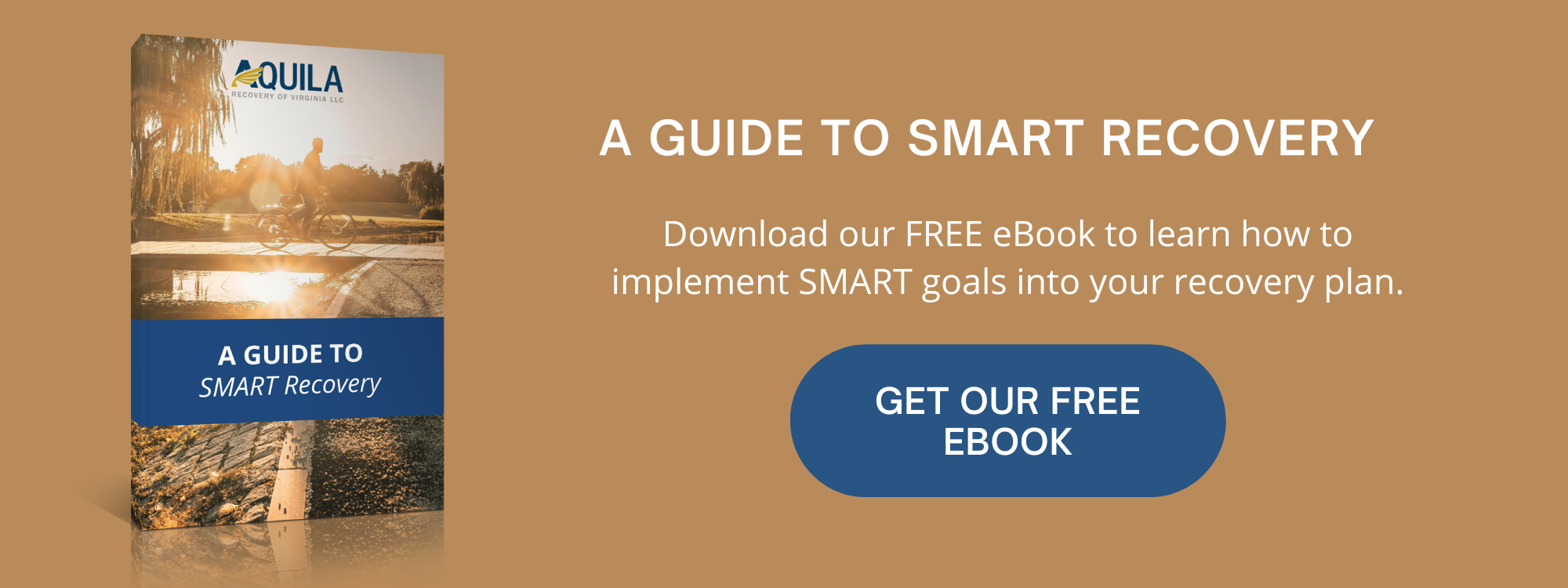A key component for recovering from addiction from substance use disorder is by setting S.M.A.R.T goals (Specific, Measurable, Achievable, Realistic & Time Bound). Goals help you prioritize, achieve your aspirations, augment your motivation for growth, and enhance confidence and self-worth.
What Are S.M.A.R.T. Goals?
Goals are important for staying on track and help to reaffirm your recovery process. Poor goal setting can make you feel like you’re not achieving anything and can hinder your progress toward recovery.
Specific
When setting addiction goals, it is important to know what you want and how to achieve it. Knowing what you want to achieve will drive away distractions and help you keep your eye on the prize. Writing down specific goals and keeping track of them will help you stay focused. An example of a specific goal would be “I am going call my sponsor once a month” instead of the vague goal of “I am going to maintain my support network”.
Measurable
Once you have set a specific goal, you will have to figure out if you are achieving it. You need to make sure that your goal can be measured. For example, the goal of “eating healthier” can be difficult to measure but if your goal is more specific and quantifiable “I will only drink one can of soda per day,” you give yourself a measure to track your success.
Achievable
Recovery is a challenging and slow process and setting goals beyond your reach can be very discouraging. But an achievable goal is fun to strive for and can help you stay positive and follow the plan that you laid out for yourself. When you set an achievable goal, you’ll make the other changes that need to happen in your life to achieve it. If you recognize that you need to get more sleep and your goal is to “get 8 hours of sleep per night,” you’ll soon identify the reasons that you weren’t previously reaching that goal, such as staying up too late when you need to get up at a certain time in the morning.
Realistic
Failure in one area of your life can lead to doubt and self-sabotage across other areas. To maintain healthy growth, it is important to set realistic goals. Before setting your goals, consider whether you have the resources or tools to achieve them. A smart goal setting exercise is to ask yourself if the goal is realistic or not. In recovery, there is often an expectation that when a loved one engages in addiction treatment they will go back to being the person they were in the ‘good old days’ before their life was controlled by substance use. In reality, every single one of us is changing all the time and tomorrow will be different than yesterday or several years ago. Instead of looking to the past, set realistic expectations on how you and your loved one can work together for a bright, new future.
Timely
When creating goals, it’s important to ask yourself whether you can accomplish the goal within a specified time. Timely goals are essential so that you are accountable to achieve them within a certain time frame and don’t keep pushing them back. If your goal is to work on your mental health by meditating, you’d want to set the goal to “Start meditating today, for 5 minutes each day” so that you don’t just plan to start it “soon” and take the steps you need to get started.
Reach Out To A Professional Addiction Recovery Center
Goal setting is important in all areas of your life and is especially important when you enter recovery. Healthy goals will help you build the life you want. Use the SMART goals framework and work towards achieving all your goals. Reach out to Aquila Recovery for more information by calling 202.618.9125 or contacting us online.

